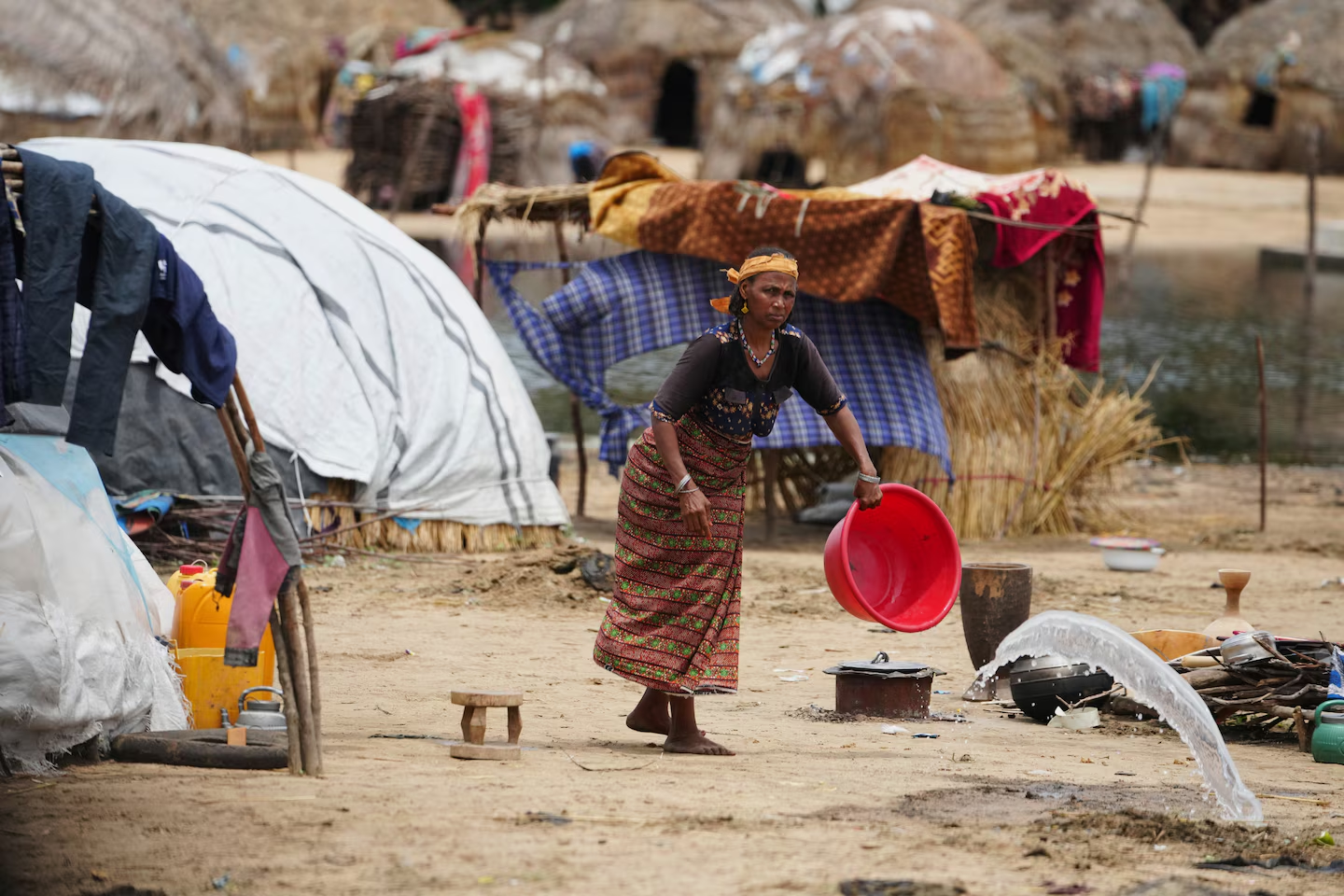A sharp reduction in humanitarian funding in north-eastern Nigeria has raised alarm over the potential resurgence of Boko Haram, as the World Food Programme (WFP) announces it has completely run out of resources to support the region.
According to WFP’s head of operations in the area, Trust Mlambo, the total halt in aid delivery is leaving thousands vulnerable and could allow the militant group to regain ground by preying on desperate communities.
“It will be much easier for militants to lure youths to join them and spiral insecurity across the whole region,” he said.
The dire warning comes as food aid for nearly 1.4 million displaced people is cut off, leaving those already struggling in overcrowded camps without critical support.
Many of the displaced, mostly women and children, have relied entirely on this assistance after being forced from their homes by a conflict that has dragged on for over a decade.
Boko Haram, a group once focused on rejecting Western education, transformed into one of the world’s deadliest jihadist outfits, notorious for mass abductions and violence that has spilled across Nigeria’s borders into Chad, Niger and Cameroon.
Aisha Abubakar, a survivor of the violence in Borno state, shared her painful journey. “My husband and six children were killed in the bush,” she said, holding her baby at an aid centre in Gwoza.
Only four of her children survived, one of whom was rescued after being kidnapped by the militants.
Now living in a displaced persons camp at the foot of Gwoza’s rocky hills, she receives $20 a month through the WFP’s support programme – a sum that barely sustains her family for a week. “We don’t have any more to give after this [month’s] cycle,” said Mlambo. “Our warehouses are empty, and we just are desperate for any generous donations.”
The United States, once the largest contributor to global WFP efforts, has made changes to its humanitarian assistance approach, resulting in cuts.
“The United States continues to be the most generous nation in the world, and we urge other nations to increase their humanitarian efforts,” a senior State Department official told the BBC. While the US government maintains that 80 percent of its global support to the WFP remains intact, the on-ground situation in Nigeria paints a different picture.
The impact of funding cuts has already triggered a sharp rise in malnutrition.
Médecins Sans Frontières (MSF) reports that the number of children suffering from the most severe form of malnutrition more than doubled in the first half of 2025, with 652 children dying from lack of timely treatment.
MSF’s country representative, Ahmed Aldikhari, described the current year as “a turning point in northern Nigeria’s nutritional crisis.”
The medical charity has also warned that over 150 clinics funded by donors and tasked with treating malnutrition are at risk of closure, worsening an already dire situation.
Back in Gwoza, 25-year-old Hauwa Badamasi is distressed after learning that her three-year-old daughter, Amina, is malnourished.
She blames years of displacement and insecurity that have kept her from accessing her farm. “The aid has stopped and people are killed on the farm. What are we going to do with our lives?” she asked at the Hausari B clinic, which serves around 90,000 people.
“We will be in a dire situation with no food and no medicine,” she added, clutching a packet of peanut-based nutritional paste given for her daughter’s treatment. It may be the last she receives.
The Nigerian government, under pressure over rising malnutrition, has pledged to take action.
Vice-President Kashim Shettima recently acknowledged that 40 percent of children under five are affected and promised to lead a national response.
A new nutrition board has been launched to coordinate interventions, but aid workers remain sceptical about how fast and how effectively it will operate.
Mlambo, meanwhile, warned that the consequences of inaction could be grave.
“If people here feel that their livelihood [is gone], they can’t even have the next meal, for sure, they will be pushed to go just across the [hills] to enrol,” he said, referring to Boko Haram’s camps in the forests.
Despite the military presence in Gwoza offering some sense of safety, many residents remain unsure how long they can hold on without food and healthcare. As aid stops and hunger grows, so too does the risk of instability across the region.

